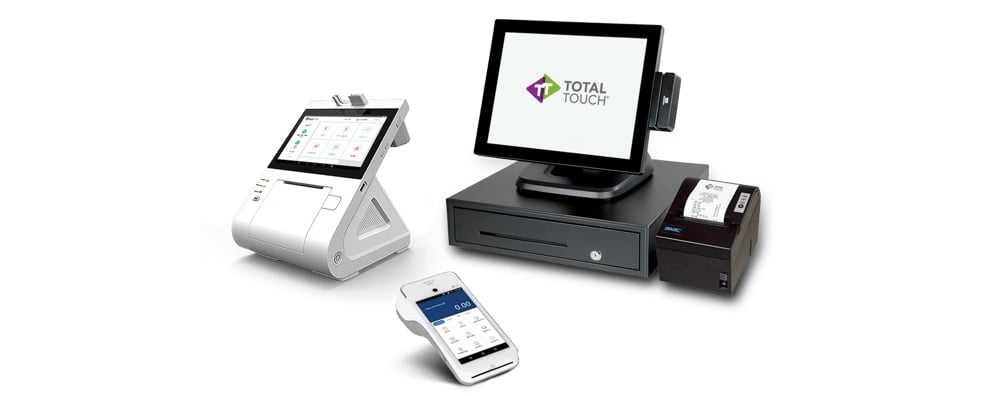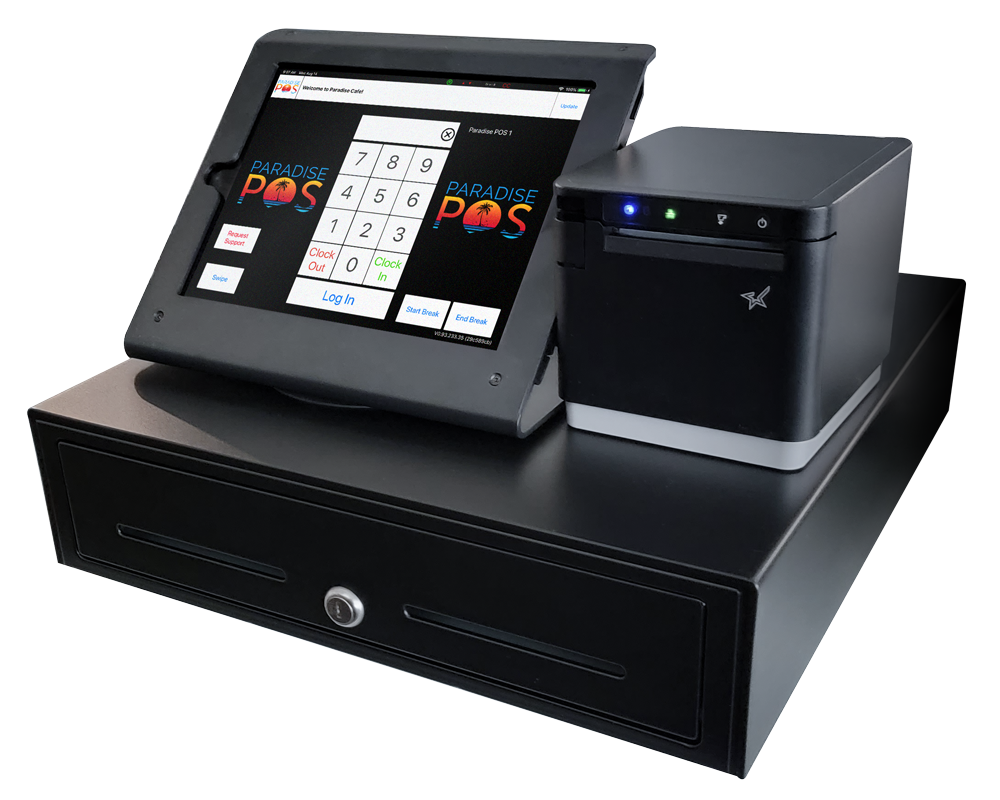The Pos Machine PDFs
The Pos Machine PDFs
Blog Article
5 Simple Techniques For Pos Systems

Point of Sale Systems: Retail Point-Of-Sale Solutions Streamline Transactions
Pos Machine Can Be Fun For Anyone

Hardware Elements of a Point of Sale System What makes a POS system tick? It's not simply software; the hardware plays a starring role. Think about it as the body to the software application's brain. Without the best hardware, even the most sophisticated POS software application is simply a quite face. Essential POS Hardware So, what are the must-haves? Let's break it down. The central processing system, often a computer or tablet, is the heart of the operation. The display or touchscreen display allows personnel to connect with the system. A barcode scanner speeds up the checkout procedure. Remember the days of manually going into each code? The reliable receipt printer offers customers with a record of their purchase. A money drawer keeps your cash safe and organized. A card reader enables consumers to pay with credit or debit cards. Diving Deeper: Beyond the Basics However wait, there's more! Depending check here upon your service, you may need specific hardware. A restaurant may include cooking area printers to relay orders, while a retail store might utilize label printers for product tagging. Ever wonder how your regional bakery instantly prints those delicious-looking labels? Choosing the Right Hardware: A Balancing Act Picking the ideal hardware isn't almost buying the most costly devices. It has to do with finding the sweet area between performance, toughness, and budget plan. A little company just starting might choose a more basic setup, while a high-volume retailer will require robust, high-performance devices. Is it better to purchase new or utilized? Consider your options thoroughly. A new system uses the current technology and service warranty defense, but a refurbished system can save you money. The Future of POS Hardware What does the future hold? Anticipate to see much more integration with mobile phones, biometric scanners for staff member authentication, and advanced analytics dashboards displayed on bigger, clearer screens. Imagine a world where stock is instantly upgraded in real-time as items are scanned-- a world where you can track your best-selling item from throughout the world. The possibilities are limitless, and the hardware is continuously developing to fulfill the demands these days's companies. Are you all set to upgrade your point of sale system?
Software Application Characteristics and Capabilities: The Heart of Your POS System
Ever enjoy an experienced barista glide through a hectic early morning rush? Their secret isn't just caffeine; it's a seamless dance with their POS system. The software application is the conductor of your business symphony, managing everything from sales to stock. What notes should you be listening for? What capabilities really matter in today's market?
Inventory Management: Beyond Counting Beans
Forget spreadsheets that haunt your dreams. Modern POS systems offer real-time stock tracking, informing you when your stock of artisanal coffee beans dips precariously low. Consider it as a digital guardian angel, avoiding those uncomfortable "Sorry, we're out!" minutes to customers. What if you could also predict need based upon historic information? Many systems now offer forecasting tools, an effective weapon versus overstocking and lost sales. This assists prevent the circumstance of running out of popular items or collecting excess inventory of slow-moving products, both of which can constrain money flow and area.
Sales Reporting and Analytics: Deciphering the Information
Sales data is the new gold, and your POS system is the miner. Forget just understanding just how much you sold today. Dive deep into the information to discover patterns, identify your very popular products, and comprehend client behavior. Which menu product pairs perfectly with the everyday special? Which promotion resonated most with your clients? These insights are not simply interesting; they're actionable intelligence. Without trustworthy sales reporting, browsing the intricacies of organization decision-making becomes like cruising without a compass, increasing the opportunity of errors and missed chances.
Consumer Relationship Management (CRM): Building Bridges, Not Walls
Remembering a regular client's name and preferred order is charming, but scaling that individual touch is difficult. POS systems with CRM capabilities enable you to track customer purchase history, preferences, and even birthdays. Imagine automatically using a discount on their birthday-- a small gesture that cultivates loyalty and motivates repeat organization. However there is the potential snag of poor data quality, which can lead to inaccurate client profiles and inefficient marketing efforts.
Payment Processing: Simplifying the Deal
The checkout experience can make or break a sale. Smooth combination with different payment approaches-- charge card, mobile wallets, even copyright-- is non-negotiable. Can your system deal with split payments? Does it provide safe and secure tokenization to protect consumer data? A clunky payment process resembles hitting a sour note in your organization symphony, potentially disrupting the entire performance. Ensuring compatibility with evolving payment technologies and adherence to security standards are critical for preserving client trust and functional efficiency.
Worker Management: Keeping the Group in Sync
From clocking in and out to handling approvals and tracking performance, worker management includes simplify operations and enhance responsibility. Is scheduling a headache? Lots of POS systems offer integrated scheduling tools, optimizing staffing levels based upon anticipated demand. A common obstacle that is frequently neglected is the obstacle of integrating employee management functionalities with payroll systems, which can result in errors and ineffectiveness in wage calculations.
Advanced Features: Leveling Up Your Operations
- Table Management: Perfect for dining establishments, this function enables you to visualize your dining-room, track table status, and handle bookings.
- Commitment Programs: Reward your best consumers and encourage repeat business with integrated commitment programs.
- Online Ordering Integration: Flawlessly integrate your POS system with online ordering platforms to expand your reach.
Choosing the right POS system is about more than simply functionality; it's about discovering a partner that can grow with your business. Consider your current requirements, prepare for future growth, and do not be afraid to ask the difficult concerns. The right software can transform your service from a disorderly cacophony into a harmonious masterpiece.
Industry-Specific POS System Applications
Think of the regional bakeshop, bustling with morning customers craving fresh croissants. A generic POS system might manage deals, but can it handle complicated dishes, track component inventory, or automatically change production schedules based upon sales information? Most likely not. That is where the appeal of industry-specific POS systems shines.
Dining establishments and Hospitality
For bustling dining establishments, speed and precision are vital. How many times have you seen servers managing orders, modifications, and splitting bills, all while trying to supply outstanding service? A dining establishment POS system enhances these procedures, permitting table management, kitchen order tickets, and even online ordering combination. These systems frequently include features like ingredient-level stock tracking, crucial for managing food expenses and minimizing waste. Ever question why your favorite dish is in some cases not available? It may come from an absence of appropriate inventory management.
- Table Management
- Kitchen Area Order Tickets
- Online Buying Integration
- Ingredient-Level Inventory Tracking
Retail Solutions
Retail, with its diverse inventory and consumer interactions, demands a various set of tools. Picture a shop clothing store struggling to track sizes, colors, and seasonal collections utilizing a basic checkout system. An industry-specific retail POS system uses features like barcode scanning, consumer loyalty programs, and detailed sales reporting. These systems can even incorporate with e-commerce platforms, supplying a seamless omnichannel experience for consumers. Did you understand some retail POS systems can forecast future sales trends based upon historical data? Now that is powerful!
The Dangers of an Inequality
Choosing the incorrect POS system can produce considerable functional difficulties. A clothing boutique using a restaurant POS, for example, would discover it unsuitable for managing stock with sizes and colors. The lack of proper reporting and analytics might lead to misinformed getting choices and lost profits. The outcome could be comparable to attempting to fit a square peg in a round hole.
Key Considerations
Picking an industry-specific POS system needs careful assessment. Consider your service's distinct requirements and operational workflows. Does the system incorporate with existing software? Does it offer the required reporting abilities? Is it scalable to accommodate future development? A well-chosen POS system is not simply a transaction tool; it's a strategic possession that can drive effectiveness, improve client satisfaction, and eventually, enhance your bottom line. Keep in mind, it is an investment in your business's future, not simply an expense.
Security Factors To Consider for Point of Sale Systems
Ever heard the tale of the mom-and-pop shop that lost everything since of a single, ignored security defect in their POS system!.?. !? It's a cautionary tale, and it highlights a vital element often eclipsed by the attraction of elegant features and streamlined operations. The truth is, a POS system is only as excellent as its security. What great is a system that crunches numbers in a flash if it enables wrongdoers to swipe customer's data just as rapidly?
The Vulnerability Minefield
The digital landscape is a battleground. Every POS system, no matter size or sophistication, is a prospective target. Are you truly got ready for the dangers prowling around the corner? The real pinch comes when you discover that your out-of-date software application has a gaping hole that hackers can make use of, turning your organization into an unwitting accomplice in identity theft. The problem is that hackers are crafty and are constantly altering their methods.
Common Security Gaps and Specialist Tips
- Weak Passwords: "Password123" isn't sufficing. Use strong, unique passwords for all POS system accounts and alter them frequently. Two-factor authentication is a must.
- Unsecured Networks: Your Wi-Fi is like leaving the front door open. Secure your network with strong encryption (WPA3 if possible) and consider a different network for your POS system.
- Outdated Software Application: Software application vendors patch security holes all the time. Stopping working to upgrade resembles inviting difficulty. Establish automatic updates or schedule routine upkeep.
- Employee Training: Your personnel is your first line of defense. Train them to acknowledge phishing attempts, protect passwords, and report suspicious activity.
Information Encryption: Your Guard Against the Dark Arts
Think about information file encryption as a secret code. It scrambles sensitive information, like credit card numbers, making it unreadable to unauthorized users. Without file encryption, your consumers' monetary information are like sitting ducks, ripe for the selecting by cybercriminals. It's not practically securing your customers; it's about safeguarding your reputation and preventing substantial fines.
PCI Compliance: The Rulebook You Can't Neglect
If you accept credit cards, you're bound by the Payment Card Industry Data Security Requirement (PCI DSS) It's a set of security standards designed to safeguard cardholder information. Failing to comply can lead to fines, charges, and even the loss of your ability to process credit card payments. It's a headache, yes, however it's a necessary one. Consider PCI compliance as the expense of doing company in the digital age.
Consider this: every deal processed through your point of sale is a possible entry point for harmful actors. By implementing robust security measures, you're not just securing your business; you're securing your clients' trust and ensuring the long-term practicality of your operations. The security of your POS system isn't just a technical issue; it's an organization vital. It requires consistent watchfulness, proactive procedures, and a commitment to staying ahead of the curve.